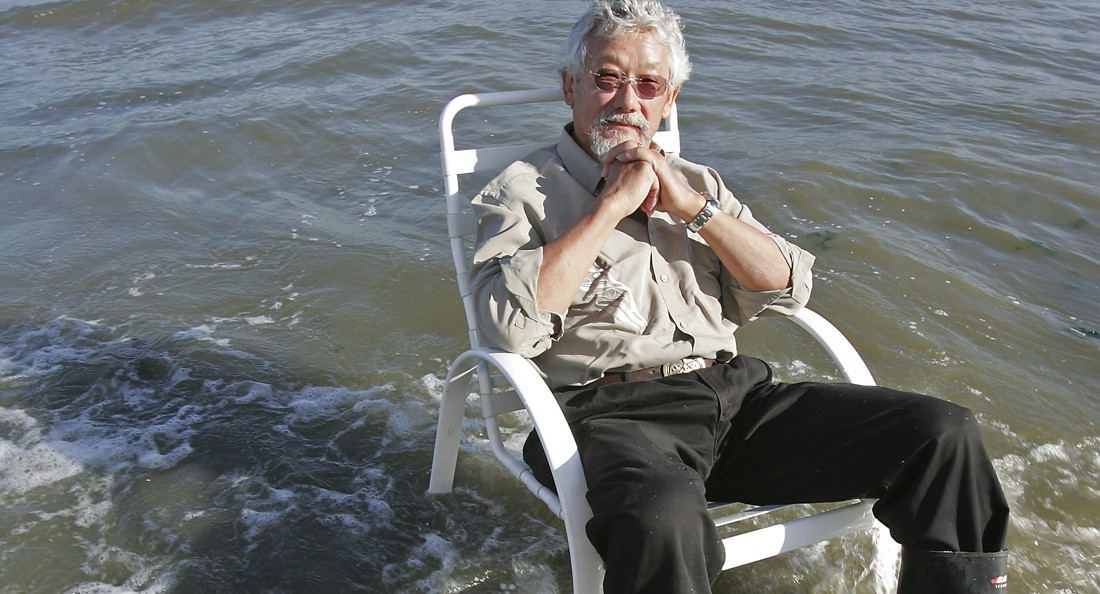From Peg City to Suzuki
Addressing climate concerns with different communities
On March 12, Dr. David Suzuki will give a lecture on business and the environment at the Fort Garry Hotel, hosted by the Aboriginal Chamber of Commerce (ACC).
Melissa Chung, an elected board member of ACC and the co-chair of their events committee says the ACC is excited to work with Suzuki and is thankful to him for raising the profile of the ACC. She says the event is open to the public as well as to members. The ACC’s members include Indigenous- and non-Indigenous-owned businesses in Manitoba.
Chung says in a call with Suzuki, he said, “Earth, air, fire and water are sacred. Everything I have learned about Mother Earth has been from Indigenous people’s way of seeing the world.”
Chung says the ACC aims to hold events that spotlight Indigenous entrepreneurship in the province and events that may be of interest to their members.
She says the ACC hopes that this event will “provide information that business leaders today and in the future can use to grow their businesses in a positive way.”
“I think many business leaders in both the Indigenous and non-Indigenous communities want to contribute to a future that is sustainable for everyone,” she says.
This event comes just a few weeks after the Peg City Climate Jam, an event which was intended “to help people connect, collaborate, plan and take action on our local, green transition,” according to the Green Action Centre’s event page. While Peg City Climate Jam was free to the public, the Suzuki lecture does carry a $100 ticket price, indicating a difference in target audience.
Eric Reder is a wilderness and water campaigner with Wilderness Committee Manitoba, one of the groups that organized the Peg City Climate Jam.
“We have to get everybody involved in these conversations,” he says.
Reder says advertising is part of how climate organizers target events to different demographics, but that organizing with different communities is more about the angle than communication method, such as addressing different transportation issues in the suburbs compared to downtown.
Reder says while Climate Jam cost thousands of dollars and was a lot of work, politicians are not going to lead climate action.
“Nowhere are politicians going to make decisions that are strong enough to act the way that scientists are telling us that we have to act,” he says.
“It’s going to be community-level gatherings where we all talk about what is possible and give each other hope, talk through some solutions, and if everyone’s having conversations about climate action, people will feel better about this,” he says.
Reder says effective climate organizing includes addressing things like the cost on homeowners to make their homes more efficient and demanding government support for those measures.
He adds that being aware of and fighting against fossil fuel development in Manitoba, such as the building of Line 3 and the fracking sand mine being proposed and started on Hollow Water First Nation, are also important.
Tickets to the David Suzuki Luncheon can be purchased on the Aboriginal Chamber of Commerce’s website.
To get involved with local climate action, contact one of the member organizations of Manitoba’s Climate Action Team, which includes the Canadian Centre for Policy Alternatives – Manitoba, Wilderness Committee Manitoba, Green Action Centre, Climate Change Connection, Manitoba Energy Justice Coalition, University of Winnipeg Sustainability Office, Prairie Climate Centre, Transition Winnipeg and the Manitoba Eco-network.
Published in Volume 73, Number 20 of The Uniter (March 7, 2019)








